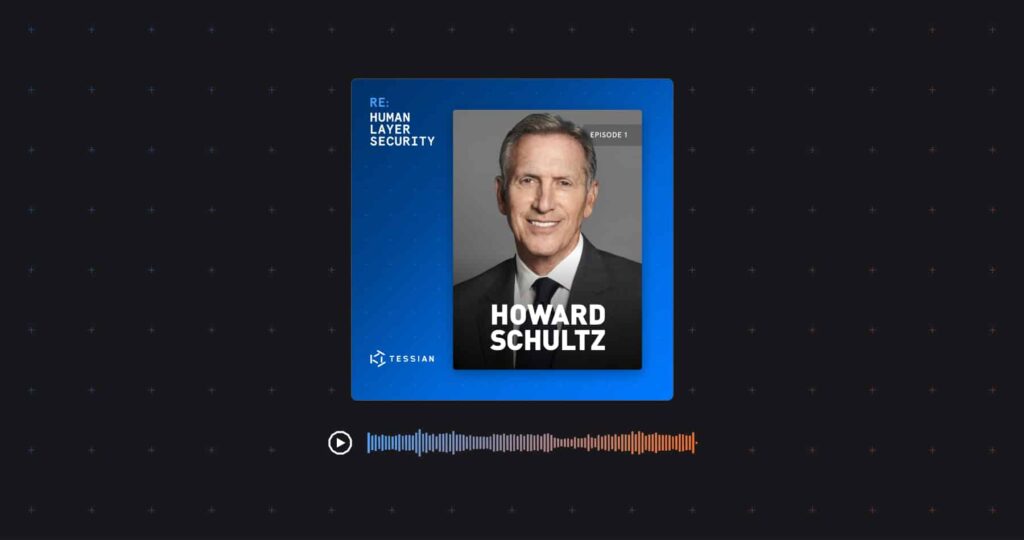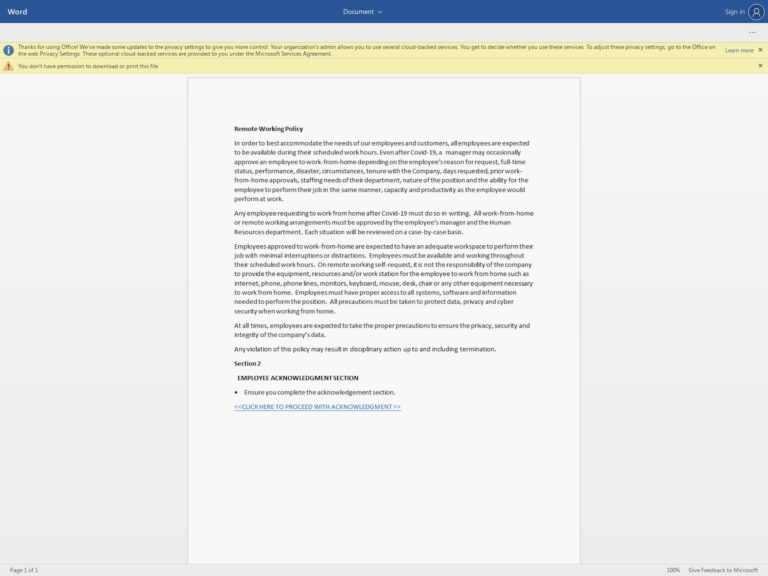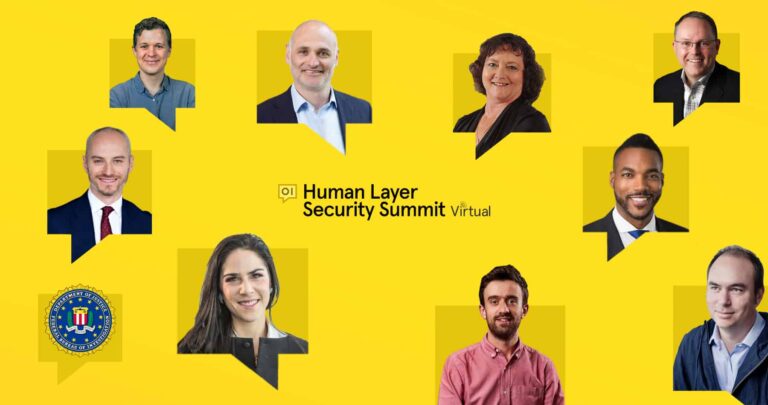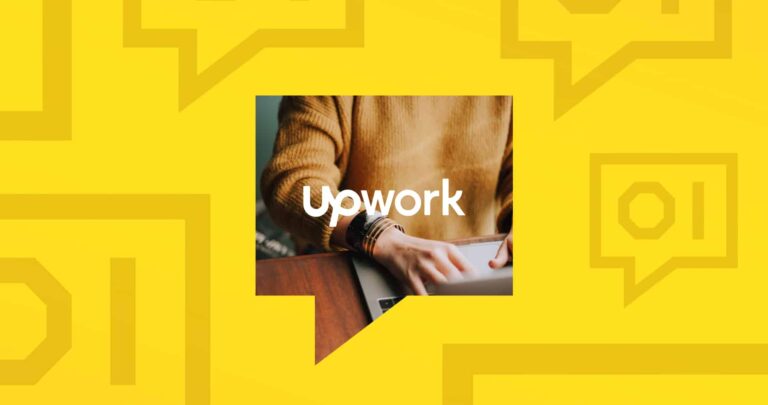Welcome to the RE:Human Layer Security podcast. This is the show that flips the script on cybersecurity and in each episode, Tim Sadler, Tessian’s CEO and co-founder, will be speaking world-class business, tech and security leaders about why businesses need to protect people – not just data and machines – to stop breaches and make businesses thrive.
Tim Sadler: For our first episode, we’re kicking things off by talking about the importance of culture to build a resilient business. I think we can all agree 2020 has been a turbulent time, a year of many firsts. And like many other leaders, managing a suddenly remote company has forced me to adapt my ways of working and think deeply about how this huge change would affect the people within Tessian.
How would it impact their mental wellbeing? Do they have the tools in place to work both productively and securely? And how do you build and maintain a culture when everybody is working in isolation? So when I had the chance to speak to the brilliant Howard Schultz, the former chairman and CEO Starbucks earlier in the year, I wanted to ask for his advice on how to lead during times of extreme difficulty. With stories from his days leading Starbucks, how to explain why managers mislead with humanity to help keep people motivated and inspired.
And if you want to hear more Human Layer Security insights, all podcast episodes can be found here.
TS: Howard, it is a great honor to have you with us here today.
Howard Schultz: Honored to be with you, Tim.
TS: Howard, like so many others, I’ve been really lucky to learn from your leadership lessons as the CEO of Starbucks. And for anybody who does an ounce of research on that company, they will hear that it was all about the people. Why do you think it’s so important that leaders invest in their people?
HS: Well I think, regardless of what business you’re in, whether you’re in the consumer business, the tech business, or the security business, it’s always all about the people and the culture and values and guiding principles of an organization. When we began at Starbucks, in 1987, when we had 11 stores and 100 employees, we actually framed a unique way to look at the business. And that was to try and achieve the fragile balance between the fiduciary responsibility of building shareholder value in the conscience and the benevolence necessary to share success with our people.
I think in the environment that we’re living in today, perhaps more than any other time, certainly in my lifetime, you can’t build a company or attract and retain great people, unless people recognize that they are part of something larger than themselves, and that they believe 100% with great trust and confidence in the management team, their leaders, their managers and the mission of the enterprise. And so this is a time when leaders must recognize the importance of truth, transparency, being vulnerable in the moment, and bringing your people along with you.
“You can't build a company or attract and retain great people, unless people recognize that they are part of something larger than themselves, and that they believe 100% with great trust and confidence in the management team and the company's mission. ”
Howard Schultz
Former CEO at Starbucks
TS: And for you, I know that you’ve said this a number of times, and it’s something I picked up on. It’s not just about being good enough, though, I think you have this saying, which is you’ve got to exceed the expectations of your people. How do you go about achieving that as a leader?
HS: Well, actually, we took it a step further than that. We said, if you want to exceed the expectations of your customers, you have to first exceed the expectations of your people. And in the environment, again, that we’re living in today. It’s not only exceeding the expectations of your people in terms of compensation, but also their values and value of the enterprise.
And I think any environment that we are all trying to navigate through today, people are coming to work with a tremendous level of anxiety and uncertainty, because there are, in my view, three pandemics going on at once. Not only the pandemic of COVID, but the pandemic of our political system here in America, where we’ve lost trust and confidence in our institutions. And third, the third pandemic is the unbelievable level. I think there’s a lack of understanding of racial inequality, racism, and in terms of our election here in America, the possibility of voter oppression. And so those three pandemics are colliding at once. And so if you are building a business or managing people, it’s not just managing and leading your business, because that isn’t the only thing your people and your employees are dealing with. They are living and dealing with many other aspects of their life and their life experience and their personal situation. They are bringing that to work, whether they are on Zoom calls at home or not. And as a manager and a leader, you must understand with great sensitivity and compassion. Then if we want to exceed the expectations of our people, then as managers and leaders, we need to walk in the shoes of our people. And that is what I mean by exceeding expectations of our people at a time like this.
“If we want to exceed the expectations of our people, then as managers and leaders, we need to walk in the shoes of our people.”
Howard Schultz
Former CEO at Starbucks
TS: I think that’s so important. And again, that was another thing that that really stuck with me this, this, this notion that actually, the role of a company is, you know, it’s no longer just a place where people show up come to work, maybe they’re here 9-5, it is, it has to be so much more, especially given this this turbulent time where actually, people, you know, they can’t I think we spoke about it previously, Howard, where you said, if you can’t put your faith in the work that you’re doing, and you can’t be proud of that, then, there are so many other things that well, there are, there are so few other places where you can you can put that pride or you can find that pride right?
TS: Now, when you were building Starbucks, you were a young leader yourself, I think you were in your early 30s, when you bought the company, what guided you or what helped you in establishing this great culture for that company as you built it?
HS: Well, I think all of us have a life experience and a personal story. Having grown up in public housing, where I saw firsthand the fracturing of the American dream with my parents, I understood at an early age, what can happen when you are your family and the resources of the family are left behind. And so in building Starbucks, I wanted to really create a company in which we were managing and leading the company through the lens of humanity. Now, it’s easy to say that it’s very hard to do. What do I mean by that?
Well, when you’re leading a company that’s growing at 50-100% a year, and you’ve got the wind at your back, it’s very easy to be humane. But the challenge for leaders in starting a company and dealing with adversity is what happens when the challenges are difficult. And the wind is in your face, are you going to compromise your values and your integrity and your ethics for a short term game?
And now, everyone who works in a company remembers the actions of what leaders do in good times and bad. And what you want to do as a leader is ensure the fact that you’re imprinting the organization with the values that people will remember during bad times. And so in terms of your question, I was trying to build the kind of company that my father and an uneducated blue collar worker who didn’t get respect in the workforce could work for, and in effect, trying to build the kind of company regardless of your station in life, that you would be valued and respected.
And that’s why we gave ownership to everybody, comprehensive health care to everybody, free college education, all of those things; we felt were important in terms of the company’s responsibility. And I think the question for all of us today is, what is the role and responsibility of a for profit company in today’s world?
TS: I think there’s so much that to unpack when talking here, about leading through times of adversity. And one of the things you said there was, you know, when it’s easy to live up to your values when the winds, you know, the winds at your back. And I wanted to draw on a point of history at Starbucks, which is when you returned as a CEO, which I think was in January 2008. And the financial crisis was in full swing and from what I understand, Starbucks was in some financial difficulty at the time. And one of the first things that you wanted to do on your return. And to me, this really speaks to that notion of you know, you have to live your values in good times, and you have to live your values in bad times. One of the first things that you did was to take 11,000 store managers to New Orleans at a cost of $33 million. And share the news that your company was seven months away from insolvency. Why was it so important that you did this?
HS: Tim, I have to commend you on your research. Well, the company was in dire straits. And I wanted to be in front of the most important person at Starbucks, which is the store manager. And I said we’ve got to get everybody in one room. And believe it or not, we went to New Orleans for three days. And this was not a getaway. This was not a retreat. This was a come to Jesus for the company. Now before we had one minute of our meeting, every single person who came to New Orleans devoted hours of work in the community in the 90s toward post Katrina, and we contributed 55,000 hours of community service – again, demonstrating the values of the company.
Now, the story you bring up is this, I had an opportunity on the third day to give a $30 million speech, the cost of the event. And before I gave the speech, my colleagues and a couple of board members asked me, what was I going to share with the people? What was the rallying cry? And I laid it out for them that I was going to tell them the dire condition that we were in. And in fact, if we went seven more months, like this.
Starbucks was going to be insolvent. That’s how bad it was. And the people around me were so afraid, basically saying, “You can’t tell them this, you will scare the crap out of them, they won’t be able to handle this kind of information.” And the question at that moment is, do you trust your people enough to have the same information that you have? And the answer has to be yes, you can’t leave people by hiding information. You can’t be a pentagon General, you’ve got to be in them on the battlefield in the mud with them. And they have to send the same information you did. So I stood up in front of 11,000 people. And I asked them two things: one as I laid out the problem, I asked them to join with me to lock arms, to all of us facing in the same direction to be aligned against what we have to do. And don’t do it for me. Do it for your, your people you work with and do it for your family.
“Starbucks was going to be insolvent. That's how bad it was. And the people around me were so afraid, saying, 'You can't tell them this, you will scare the crap out of them, they won't be able to handle this kind of information." And the question, at that moment is, do you trust your people to have the same information that you have? And the answer has to be yes.”
Howard Schultz
Former CEO at Starbucks
And the speech did not turn Starbucks around. But we wrote we roared out of New Orleans, like a tidal wave. And seven months passed, and we never looked back. And of course, today, Starbucks has 32,000 stores in 83 countries, and one of the most recognised brands in the world. But we have challenges just like everybody else.
But the HR issue in every company, the human condition, human behaviour, if you can unlock that. And I’ll let me say it this way, if you separate the culture from the strategy, i.e. you have a great strategy, but a bad culture, I think nine times out of 10, you are not going to achieve the aspiration of that strategy. The execution is going to be flawed. You have a world class culture, where there is a currency of trust throughout the organization where everyone believes in the mission of each other, and we’re going to take the hill together, you link that with an average strategy.
With a lot of competition, you give me that scenario. And I tell you, you are going to win. Because culture, and I hate to use this word, trumps strategy.
TS: And I think that’s so important. When we think about also leading, leading teams, leading our people and protecting the company, something you told me how which was, you know, vulnerability can actually help you build stronger bonds with your people. Sharing vulnerability, being vulnerable with those around us actually allows us to get closer and people come closer when they see that, you know, where we will have the right world working on something.
HS: Yeah, and especially for men, you know. We’re not taught to be vulnerable. We’re not taught to be sensitive. And I think the more you can reveal to your people about who you are, and take the defenses off, and be real and be authentic, the better off we will be.
TS: I want to go to something that he said over a year ago now, but I think it was January 2019. I’m quoting you, but it really struck me. When I heard this, you said that the elephant in the room of the country today is humanity. And it really resonated, I think with many of the challenges that we’re facing right now, you know, in society, but also, we see this in many companies. And I wanted to get your thoughts on how is that quote aged for you, given where we are today?
HS: You know, as I said to you earlier, I really believe we’re living through three pandemics at once all colliding with one another. And I think, especially for young people. It’s very easy for young people today to lose trust and confidence in the future. And when I speak about humanity as the issue in the room, the elephant in the room, I just think people are living with tremendous anxiety and uncertainty and are so hungry to be lifted up by something that’s real. That’s something that’s truthful. And, and no integrity, if you’re trying to build a great enduring company, you’re trying to provide a much needed service to your customers. If you can do that, while at the same time, building an organization in which people are truly valued for who they are, and people are seen and understood, and really feel like they are part of an organization where they, they themselves feel as if they are not only contributors, but they are being valued in a way that’s so unusual.
If you can lift humanity, and integrate humanity into the core purpose and reason for being, and if everyone on the call, can integrate and lift up their people, and recognise the importance of humanity, in their business, every single business on this call will be better for it. Because we, as people, in the US and all over the world, we are hungry longing for humanity, for truth, and for people and organizations that we can believe.
TS: And I think that’s something that’s so it’s such a powerful statement that something we can all take away into our practice, whether we’re leading a company, we’re leading a team, or we are serving our company. And again, I think something that’s so unique and special about the security community is that leadership is your, it’s your team, it’s the people who report to you, but you’re having to show leadership for the whole company, you know, there is a huge task ahead every single day, you’re tasked with the security and the protection of the whole company.
And one thing I wanted us to finish on Howard. There is often so much pressure in our day to day lives, or you know, we are tasked with really important initiatives and really important things. And I think the remarkable, or one of the remarkable moments that again, you’ve shared with us today and is, you know, for anyone who does any research they will see is those moments when faced with extreme difficulty or uncertainty, you are able to deeply not only live your values, but I think go back to your values and embrace your values.
And the question I have, or the advice that I would love to finish on is what can you offer? What advice would you share with people who are on the call today thinking, you know, this sounds great, but actually, I’ve got the pressure of my day to day job just to get through? How can I ensure that I am constantly living those values, the values I have for myself and the values that my company has to me? What advice would you give to them?
HS: That’s a very big question, Tim. I try my best!
TS: I’ve saved the best for last.
HS: When each of us goes home at night, and we’re sitting with our wife or husband or partner or family. And we have an opportunity to talk about the company that we are part of, or the work we did today. The rhetorical question is, did you as a leader provide the people who work within for you an opportunity to speak about their work in the company with pride? And if the answer is yes, then you know that you can start your day tomorrow realising that what you did today was really, really good.
The challenge we have as leaders, is we got to do it more often than not. And I think what we’ve always tried to do at Starbucks is answer the question in the affirmative. Are we making our customers and our people proud of the equity of our brand, the values of our company, and the guiding principles of what is our core purpose or core purpose and reason for being? And let me let me say in a week or two is the 50th anniversary of Milton Friedman’s famous essay about the role and responsibility of a company. Now, Milton Friedman was a god in terms of his economic acuity.
But I disagree with humility. That Milton Friedman’s theory, that a business his primary responsibility was to its shareholders and to make a profit. I don’t think that applies today. It goes back to what I said earlier. We all have to be in the business of improving the lives of our people, the communities we serve, and I bet you that your customers and the customers of theirs want to do business with companies and management teams who are values based.
“When each of us goes home at night, we have an opportunity to talk about the company that we are part of, or the work we did that day. The rhetorical question is, did you as a leader provide the people who work within for you an opportunity to speak about their work in the company with pride?”
Howard Schultz
Former CEO at Starbucks
Never, it’s never been more important to me and to recognise the critical importance of business today to lead with his heart and with his conscience.
TS: I think that’s a fantastic note to finish on. And again, Howard, thank you so much for your time today and sharing all of this insight and guidance with us.
TS: It was amazing speaking with Howard. I think one of the things that stuck out for me was if you have a great strategy, but a bad culture, it’s very likely you’re going to be unsuccessful.
A company’s culture is built on that currency of trust with values that inspire people to do great work. And also leaders shouldn’t be afraid to be vulnerable. As Howard points out, it can lead to stronger bonds with people and then foster that trust.
Join the next episode of RE: Human Layer Security, where we talk with Stephane Kasriel, the former CEO of Upwork, and a future of work visionary. Stefan and I will be talking about the topic of remote work, and why it really isn’t something that’s going away anytime soon.
And that just leads me to say thank you very much for listening. We have more Human Layer Security insights in our next episode. But if you can’t wait that long, you can visit our blog, where you’ll find lots of amazing content, advice and tips. And if you enjoyed our show, please rate and review it on Apple, Spotify, Google Play or wherever you get your podcasts.












